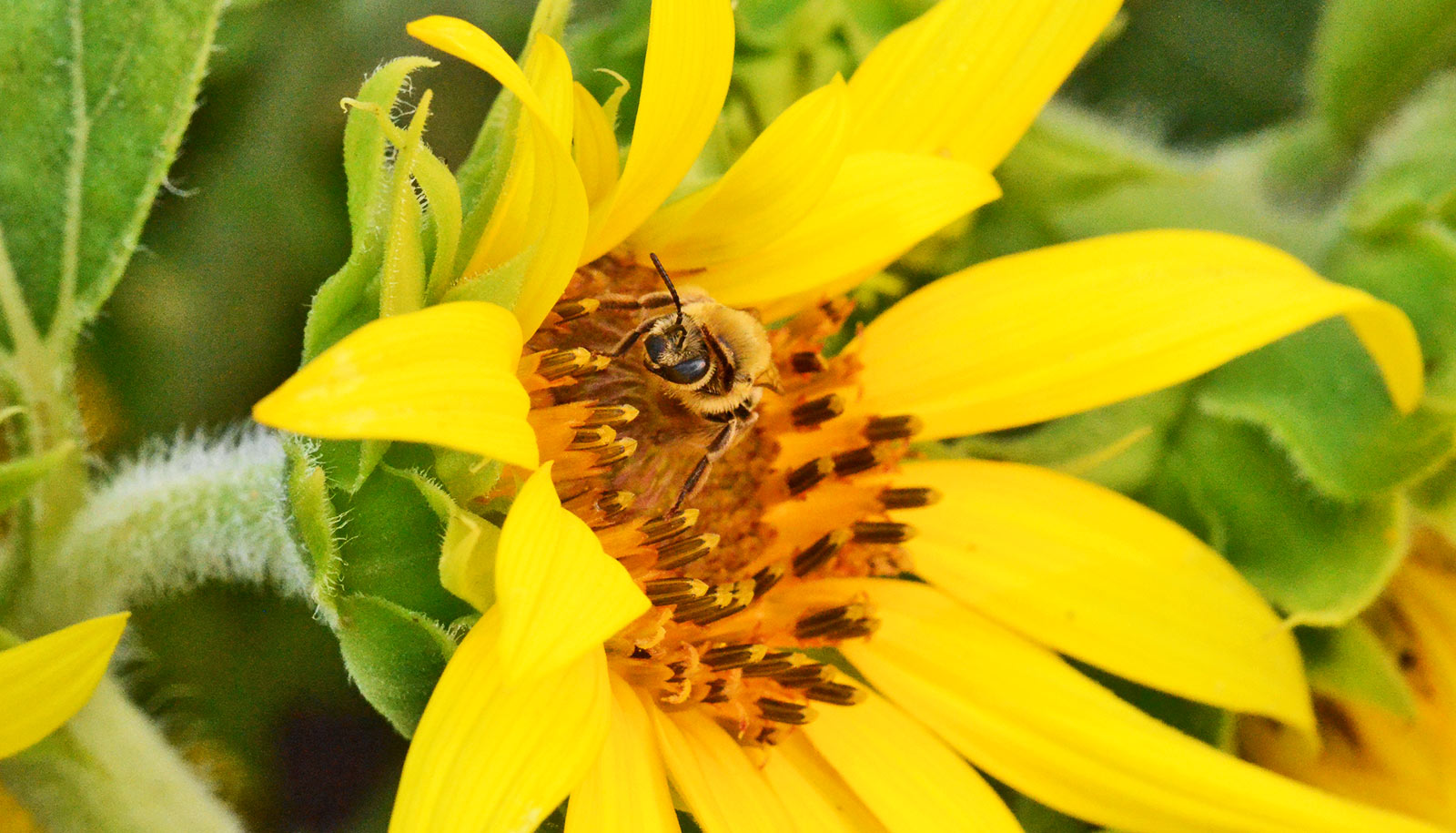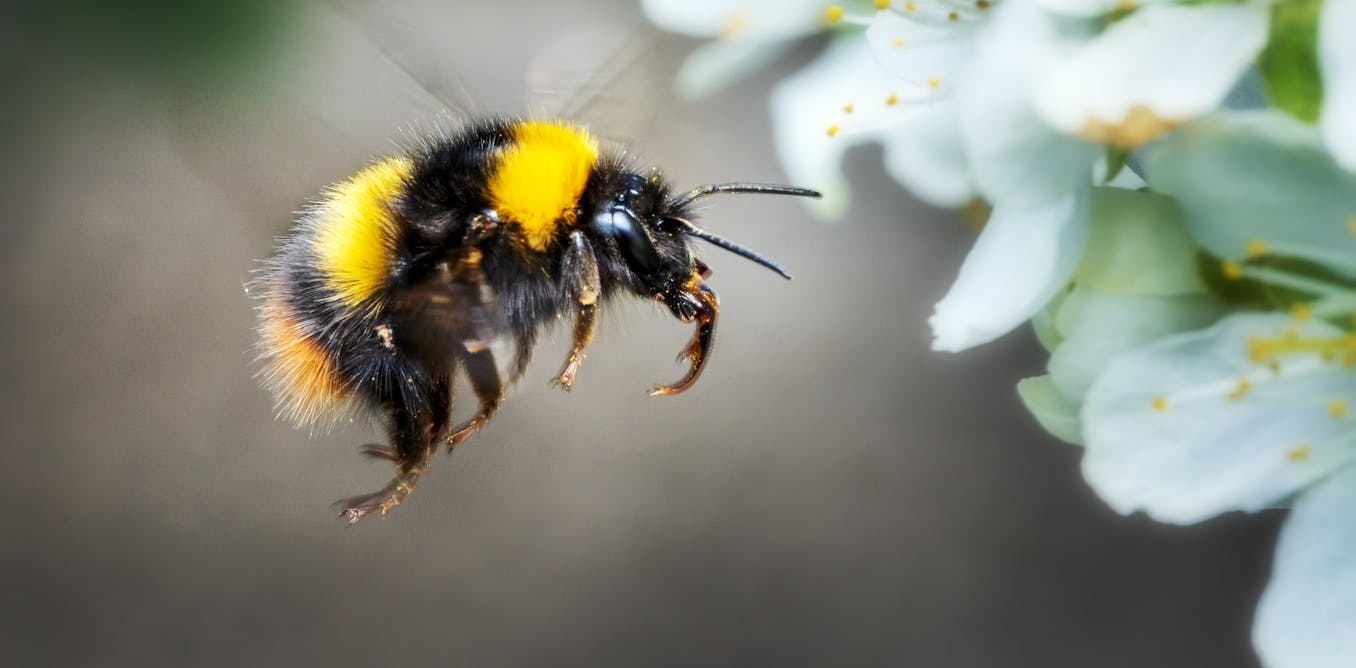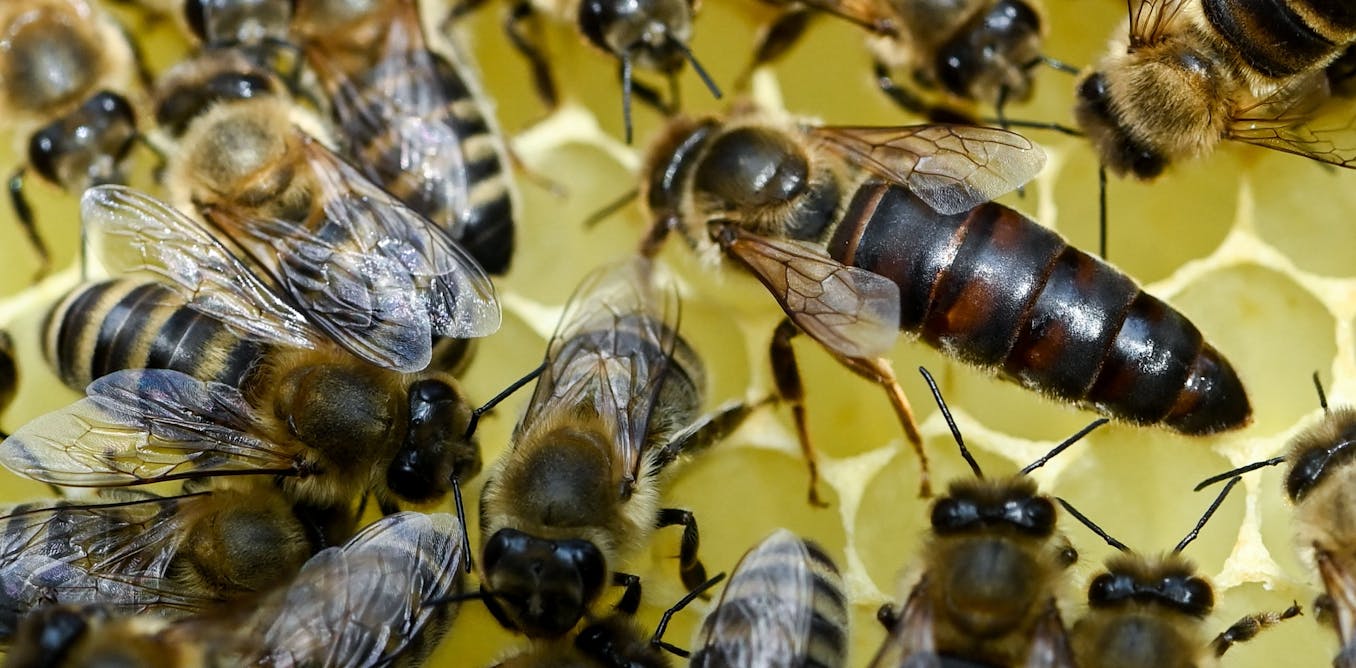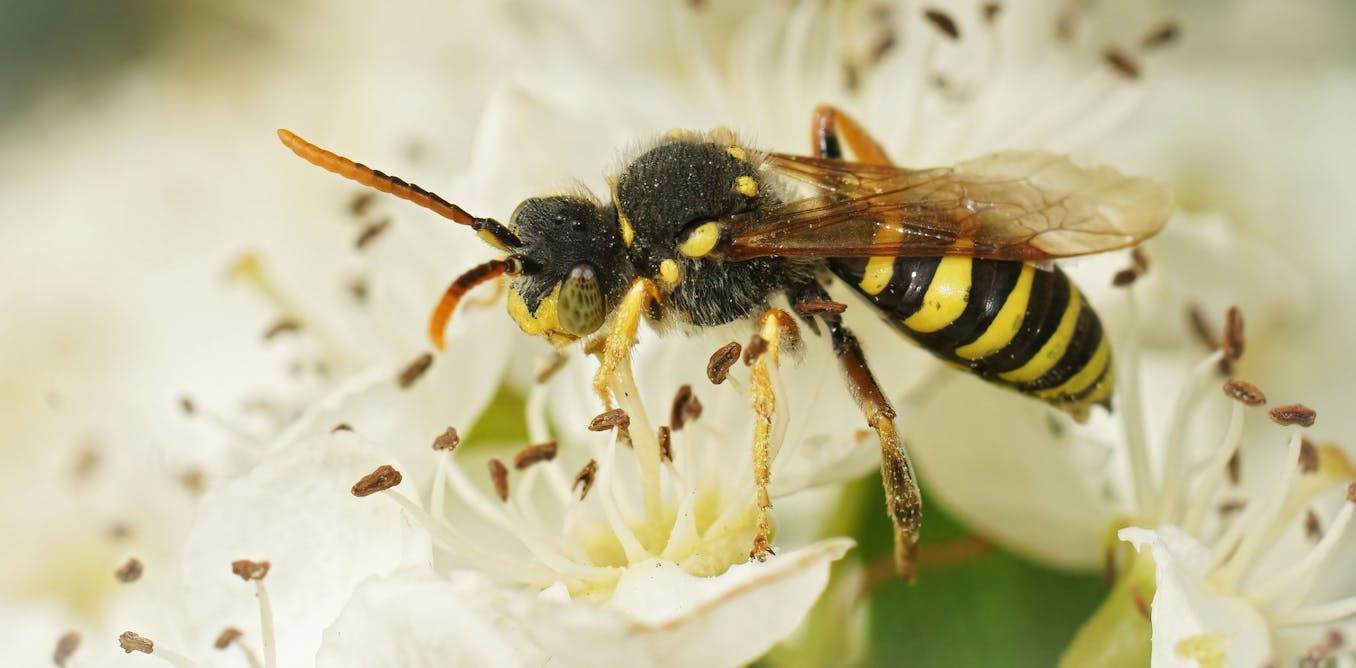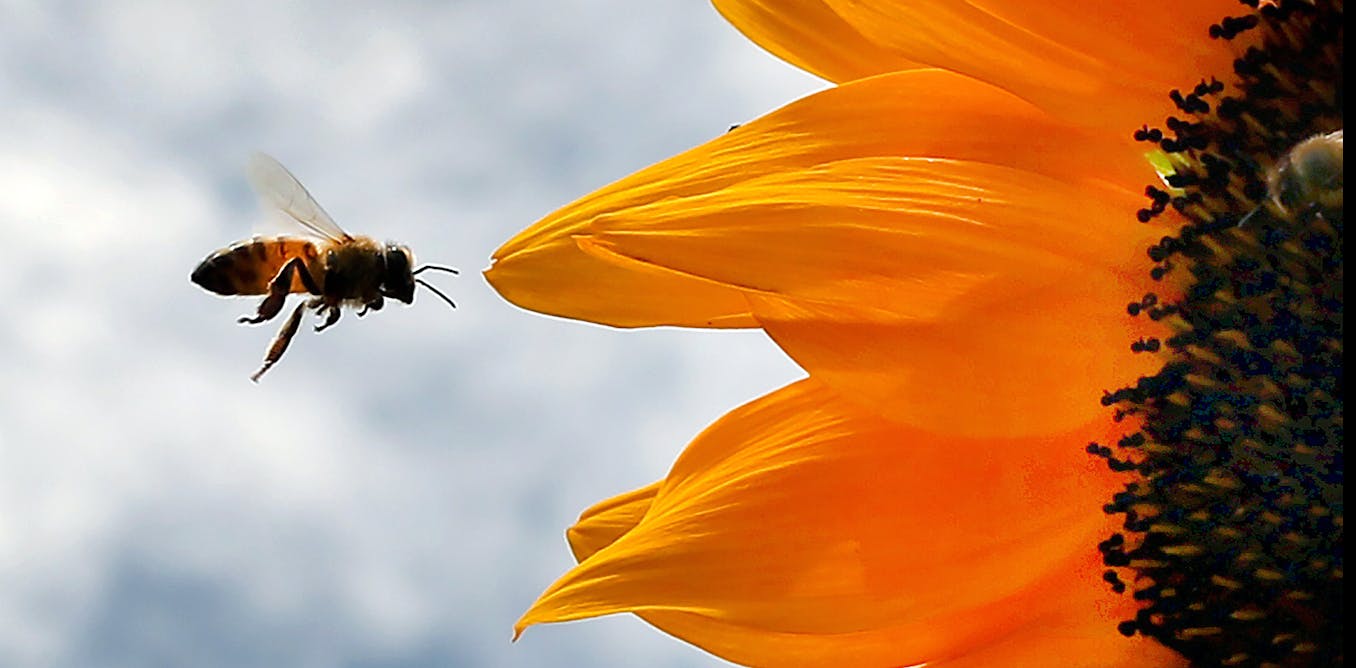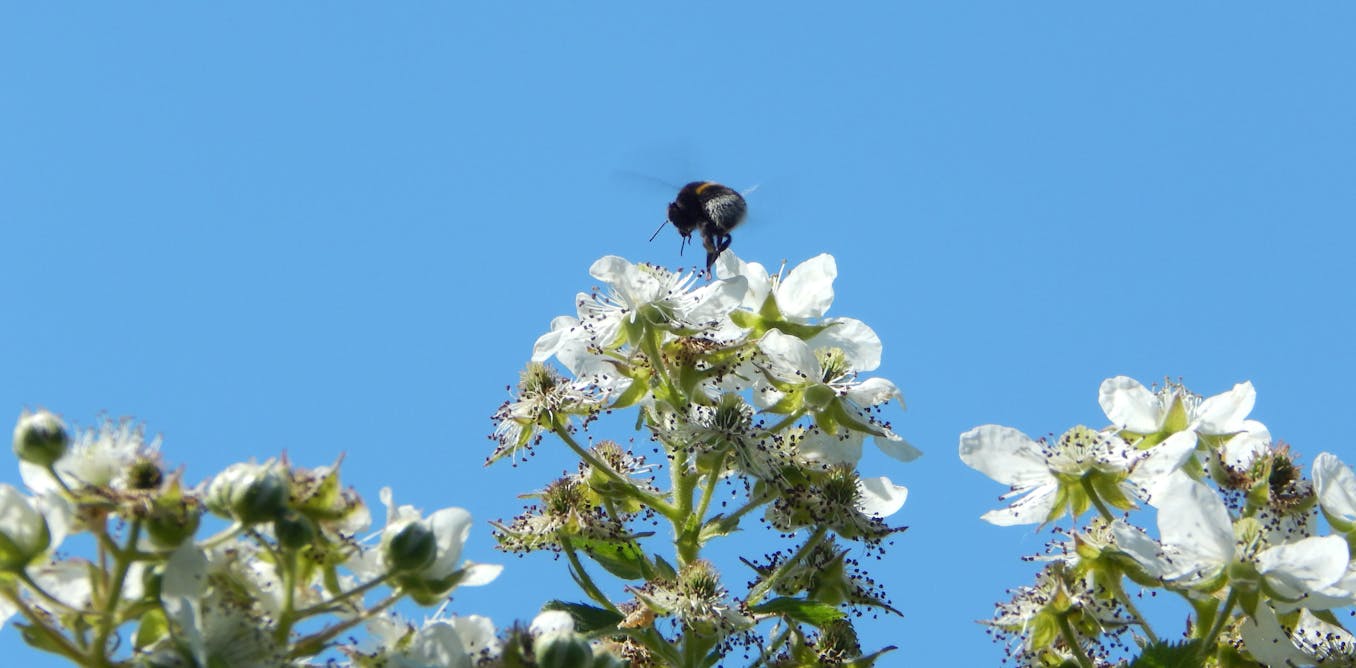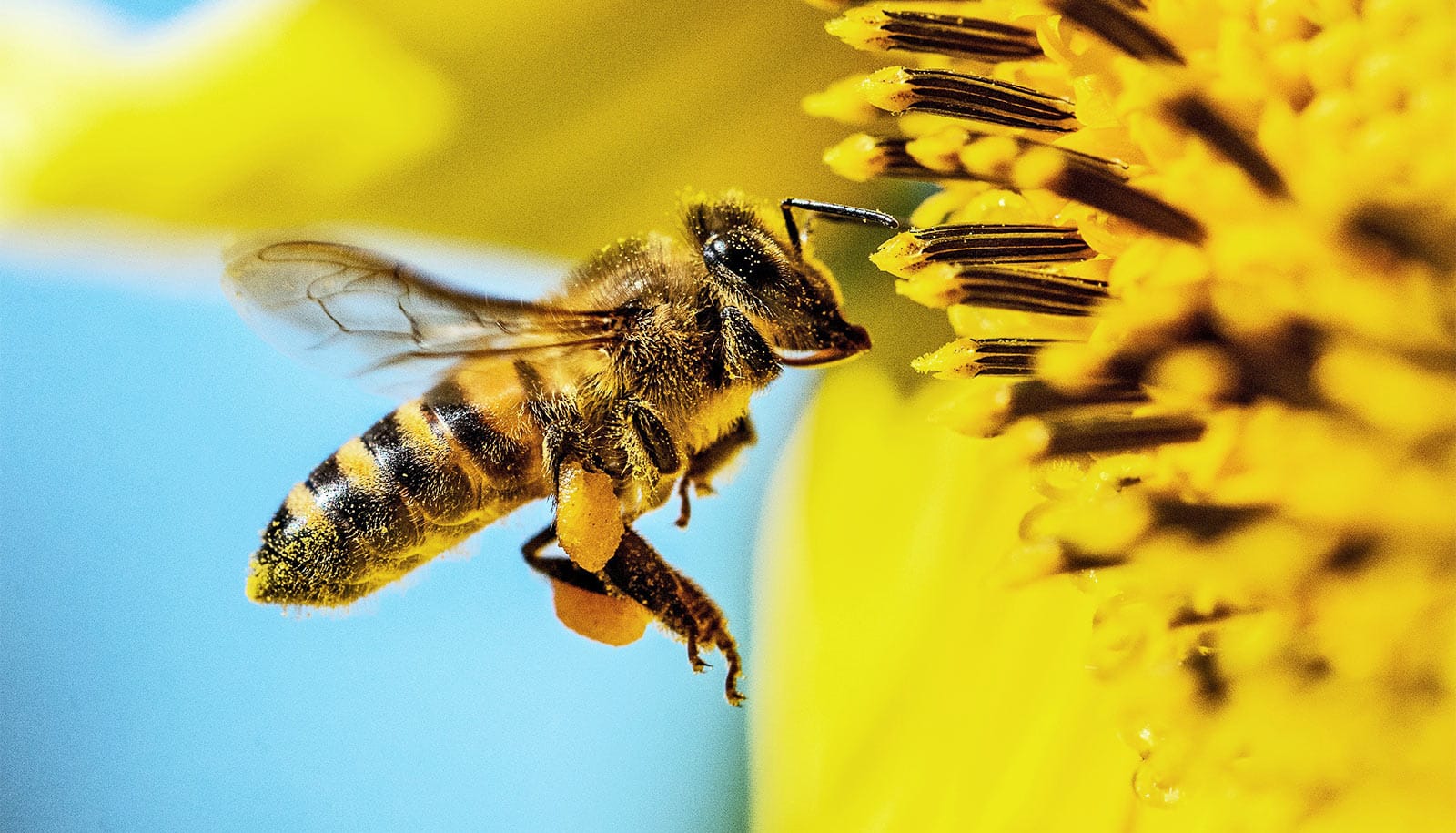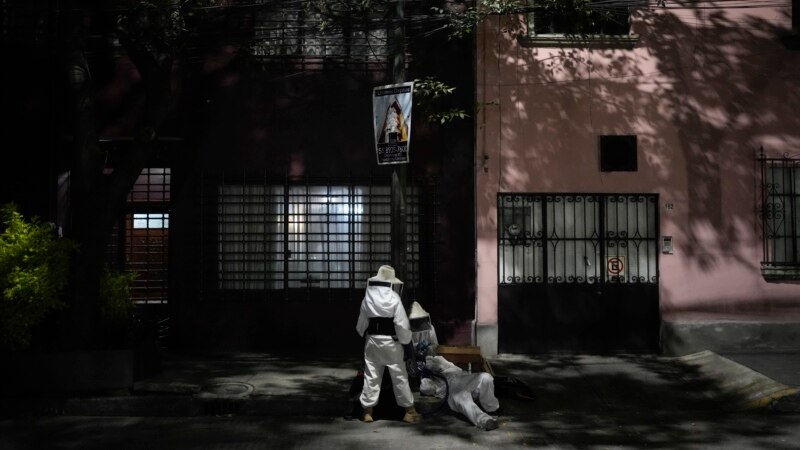Why do bees have queens? 2 biologists explain this insect’s social structure – and why some bees don’t have a queen at all
A queen’s main job in the hive is to lay eggs and pass genes on to offspring. But many bee species do just fine without queens or big colonies.
Aviva Liebert, Professor of Biology, Framingham State University •
conversation
March 4, 2024 • ~7 min
March 4, 2024 • ~7 min
Wild solitary bees offer a vital pollination service – but their nutritional needs aren’t understood
The nutritional needs of bees are complex and monoculture crops aren’t providing a diverse diet. Introducing more diverse wildflower meadows and green spaces could benefit wild pollinators.
Ellen Baker, PhD Candidate, Nutritional Ecology, University of Oxford •
conversation
March 1, 2024 • ~6 min
March 1, 2024 • ~6 min
'Inert' ingredients in pesticides may be more toxic to bees than scientists thought
Inert ingredients are added for purposes other than killing pests and are not required under federal law to be tested for safety or identified on pesticide labels.
Jennie L. Durant, Research Affiliate in Human Ecology, University of California, Davis •
conversation
Dec. 5, 2023 • ~10 min
Dec. 5, 2023 • ~10 min
Why moths might be more efficient pollinators than bees and butterflies
But pesticides and climate change are threatening moths’ future.
Max Anderson, South West Landscape Officer for Butterfly Conservation
• conversation
Aug. 16, 2023 • ~7 min
Aug. 16, 2023 • ~7 min
Ivy, dandelions and other common wildflowers are often seen as weeds – but they're a crucial resource for pollinating insects
Native common wildflowers provide large amounts of pollen and nectar for insects – but many are undervalued by the public.
Nick Balfour, Research Technician in the School of Life Sciences, University of Sussex •
conversation
Aug. 7, 2023 • ~7 min
Aug. 7, 2023 • ~7 min
/
10

